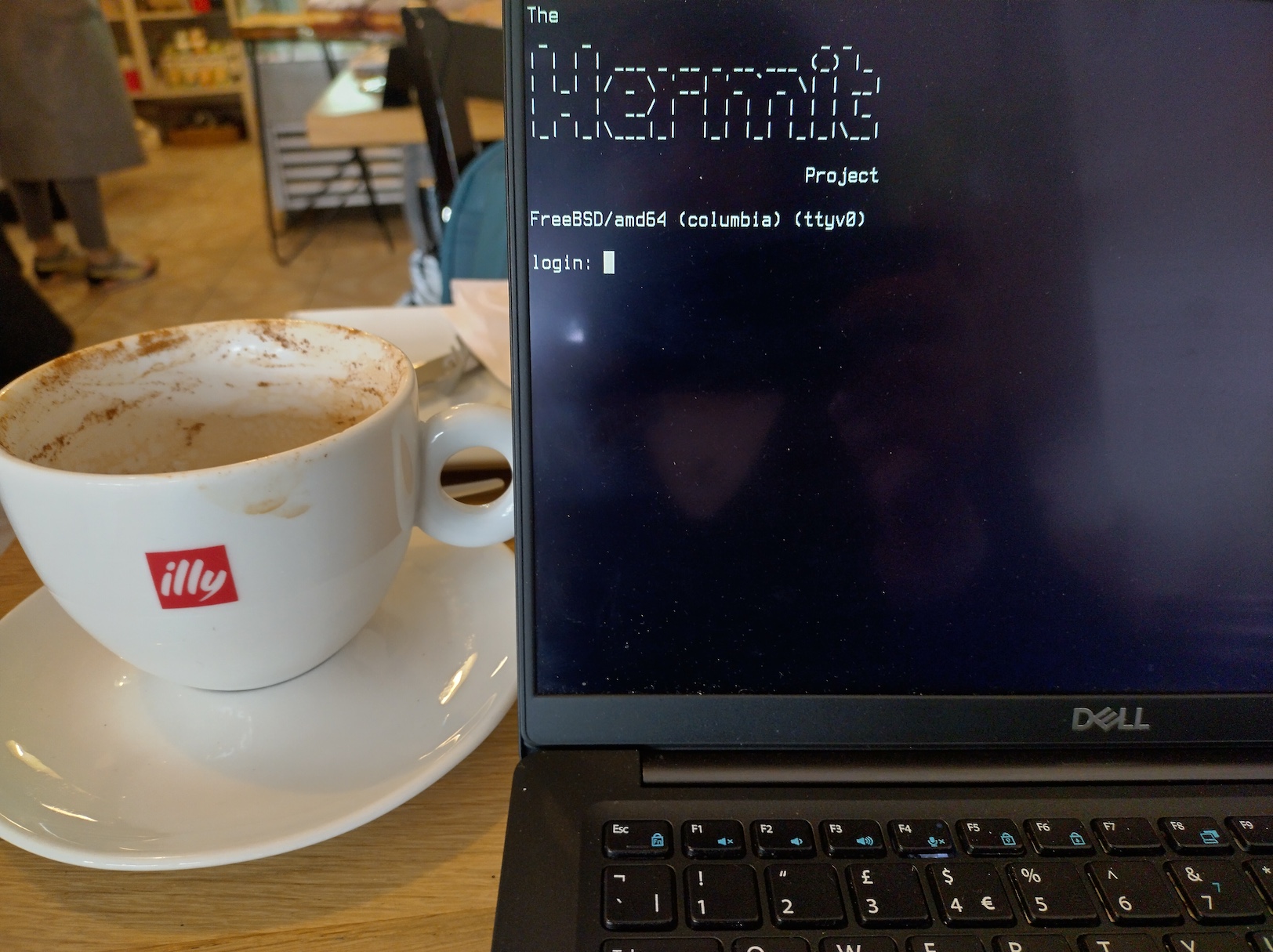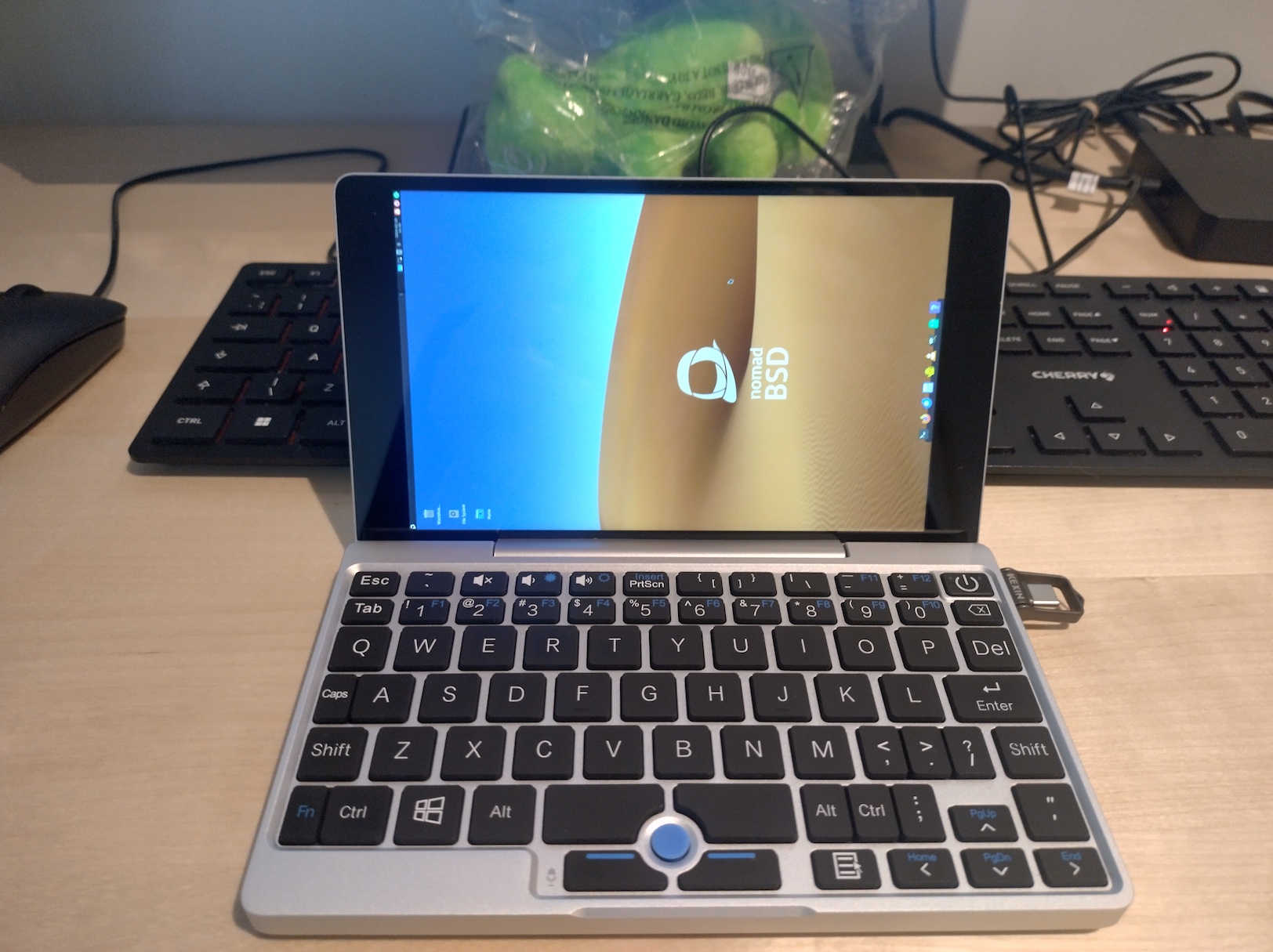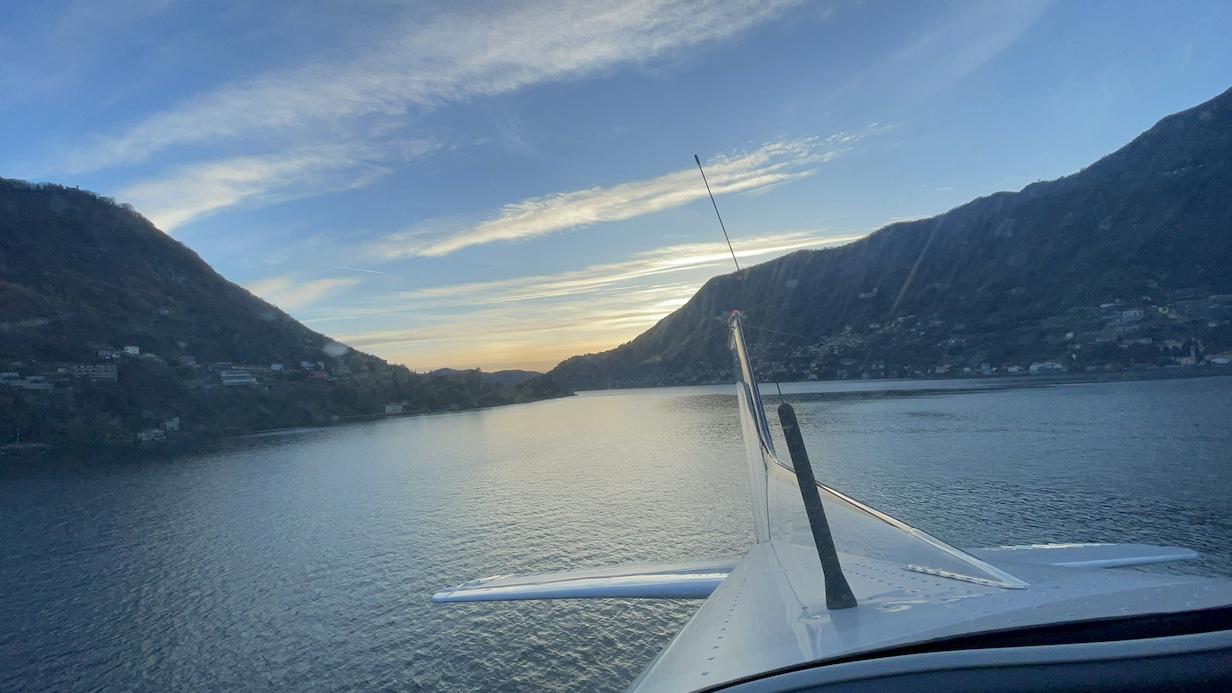The Hermit Project - Part 6
In the months since I started the Hermit Project, I learned that other people feel the same about how the Internet has become. Other people are willing to embrace a more minimalistic approach, like the recent talk “NetBSD for the Advanced Minimalist” by Rambius.
So far, my project is running on three laptops. Ok, perhaps I should not count the Dell Mini 9. Anyway, I have all the tools I need for my everyday personal life (i.e. not work-related): a text editor for editing my journal and my articles, a spreadsheet for my flight log and tracking my health, a little database, and a text-only browser. And yes, privacy is provided by multiple layers of encryption, and my hardware token (YubiKey) works like a charm to access remote ssh systems. Even if it feels like the ’90s, I’m satisfied overall. Here’s my project running while having a cappuccino in London. It’s strictly Illy coffee, of course.

So, what’s next?
I am considering adding a text-based e-mail client like alpine or mutt. I’m questioning if this could bring more anxiety as I would feel the urge to answer the e-mails. I already segregated personal e-mail addresses and work-related e-mail addresses, so adding personal e-mails only shouldn’t be too harmful. There’s only one way to figure it out: try it. I would like to share with you a very useful howto on Reddit about mutt and IMAP synchronization that you might find useful too.
Perhaps I’ll introduce NNCP: a more modern version of UUCP, that allows to build up a small size (dozens of nodes), “friend-to-friend”, alternate secure communication network. It provides reliable files transfer, Internet mail and commands transmission. That will allow me to transfer outbound e-mails to my private mail server or exchange information with potential peers.
Also, I’ve been recently made aware of fossil, a source control system that could be an alternative to git for smaller setups (thanks Merlin for the tip!). I am pretty happy about git and my personal gitea so far. But the good/tempting thing about fossil is that the repository lives in a single file. Hence, it is easier to back it up. Bonus point, it has an integrated wiki. And I am quite a fan of the integrated wiki in GitLab and Gitea. It is very useful for documentation.
Last but not least, I would like to focus more on security. For example, add a more robust way to encrypt my ZFS home filesystem, such as using a portable TPM or the YubiKey itself or hardening access to the system.
We’re basically at the end of this series about my Hermit project. You might think this is about a computer project, but it’s way more than that. It has been mostly a journey of self-discovery and acceptance: through pain and challenges in life, I understood my needs and how (different) I am. That is true in real life, as it is on computers.
I understood I didn’t need to follow the madness of the “next big thing” to be happy. My passion for computers stopped when the competition began. Life is not a competition for me, and it’s time to return to my original passion. And, probably, rather than pursue true/full happiness, I should find some joy in little things in life.
I learned from Nina and Atsuko how important it is to value things that work perfectly, even if they are older. I also learned from them the value of finding harmony in your environment (like being self-sufficient), and I value their sense of community. I learned from a lost friend the value of life when health is not helping. Thanks to her, I’ve embraced FreeBSD and learned a couple of other tech tricks. From my friend Kath, I learned the value of endurance and resilience in life, and how much bonding with water was important to me.
While I’m mostly satisfied with the current setup, Hermit is an evolving project that meets my needs and life. So, check this space from time to time for potential updates. Before I go, you might be wondering about the status of the GPD Pocket mini-laptop mentioned on the first episode. It’s still a work in progress. Are you even surprised? The problem with that laptop is that, by design, the screen is rotated by 90 degrees. This is what it looks like (running NomadBSD):

Linux has a way to rotate the framebuffer console through a kernel parameter (fbcon=rotate:1), but the font is so tiny that it’s a challenge to read such a small screen. FreeBSD has some kernel patches, but I didn’t have time to try them. I guess it’ll be another item in my (infinite) TODO list.
Although it was a daydream, at the moment, I won’t retreat to a cabin in the mountains. I still need to be in London from time to time. But I plan to spend more time by the lake, which is quite close to that daydream. Hopefully, laying on a sofa with a blanket and book. And hopefully, be able to fly more.
I want to thank those who were and are beside me on this bumpy journey. I’ll leave you with a picture of a sunset on the beautiful Italian lakes on board of a seaplane.

Thanks for reading this mini-series about this life/computing adventure of mine.
With love, Tara.
[Part 5]